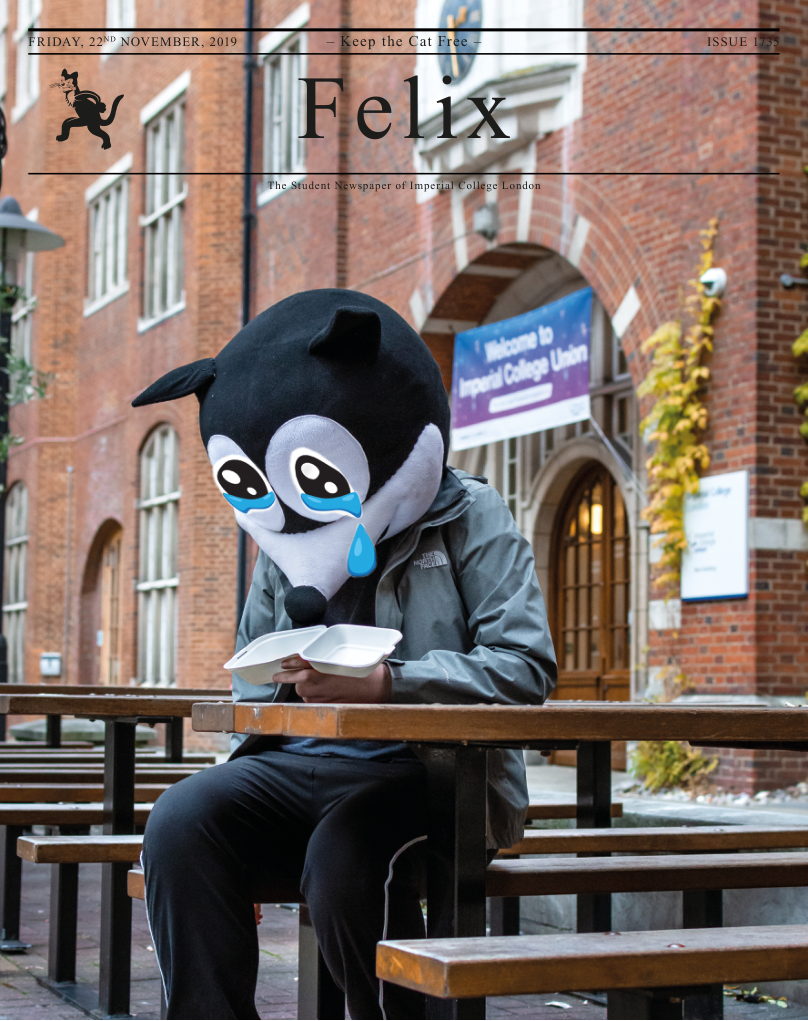Survey Shows What Students Really Think of Brexit
The survey conducted across over 35,000 students showed that a significant majority oppose Brexit and deeply distrust British politicians; student interviews conducted at Imperial corroborated

A survey conducted by Dig-In – of freshers’ week welcome package fame – has demonstrated that a strong majority of students in the UK oppose Brexit. Out of over 35000 students surveyed, 38% stated that they ‘hated’ that the UK is leaving the EU, while a further 24% ‘dislike’ it – totalling for a 62% disapproval rating.
The statistics do not vary significantly between UK and international students, though there is a notable split based on gender – 58% of men, 66% of women, and 77% of those who identify otherwise responded with ‘hate’ or ‘dislike’, showing a significant stasticial variance.
By contrast, only 9% responded that they ‘liked’ or ‘loved’ the UK’s proposed departure. A further 28% of students responded that they feel ‘indifferent’ – a statistic described by Felix’s Ameena Hassan as “expected if it were an Imperial-based study, but shocking considering it was nationwide”.
The apathetic cohort may instead reflect a desire for politicians to focus on other topics. When asked about the topics they felt should be the top priority, 53% said climate change, 21% were for healthcare, and only 17% for Brexit. Students appear to feel the urgency of globalised, existential issues more heavily than more short-term and localised ones, perhaps encompassing an ideology best described by one Imperial student speaking to Felix: “we are in a globalised world; we are meant to unite, not separate each other.”
Felix interviewed students on the South Kensington campus, and received a variety of responses approximately in line with the survey’s findings. Most Imperial students felt strongly that Brexit will be negative for the country, with the next highest cohort being those who said they did not know anything about Brexit.
One student commented that Brexit had directly affected their decision to stay in or leave the country: “I don’t think I am going to stay after my studies. It’s sad but I have no idea what is going to happen.” They confirmed that they would definitely have stayed if Brexit was not occurring.
This lack of certainty, and a resulting dearth of optimism, is shared nationwide. Only 7% of students responded that they ‘love’ or ‘like’ the thought of the UK’s near-future – a 20% drop since last year – while over half (53%) either ‘hate’ or ‘dislike’ it.
On the matter of trust, the statistics are even more damning – particularly towards British politicians. 84% distrust Boris Johnson and 76% distrust Jeremy Corbyn. Almost three-quarters of students were convinced that the UK would not leave the EU on October 31st – a prediction that turned out to be accurate.
An interviewed Imperial student commented: “Labour was against it, and now suddenly they are for it. Everyone’s policies seem to change every day. It’s confusing for the people, because we don’t know who to trust.”
The CEO of Dig-In, Chris Platt, added: “These findings are hard to hear - our student community is clearly concerned about its future. Much has been said in the past about the split of leavers vs remainers being heavily weighted by age, but this large scale poll shows just how opposed to Brexit these young people - the potential future leaders of this country - feel. My hope is that their thoughts, feelings and future outcomes are carefully considered by whichever government is in power in their near future.”
However, there seems to be little faith that any government, regardless of the general election results, would be able to deliver on their promises. Another student said “a new parliament will have to renegotiate – that will be another couple of years of delay. I don’t think it will happen in the next five years.”
Despite the verbosity of many students’ comments above, Comment Editor and reporter Charlie Titmuss noted a distinct reticence amongst students about the topic of Brexit. “A lot of people were initially happy to talk to us, but as soon as we mentioned Brexit they backed off and were kind of scared to speak. It’s still a controversial topic even three years later.”







